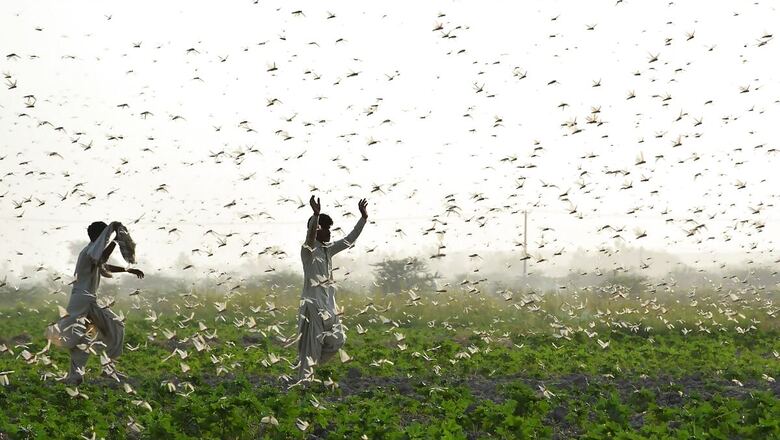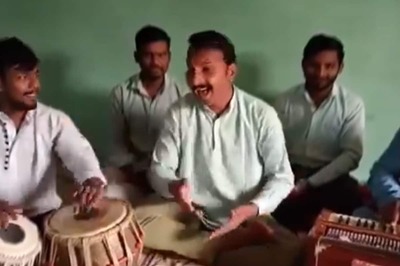
views
Locust control operations have been carried out in 2.76 lakh hectares area in Rajasthan, Madhya Pradesh, Punjab, Gujarat, Uttar Pradesh and Haryana since April this year, the Union Agriculture Ministry said on Wednesday.
"Starting from 11th April 2020 till 18th August 2020, locust control operations have been done in 2,76,267 hectares area in States of Rajasthan, Madhya Pradesh, Punjab, Gujarat, Uttar Pradesh and Haryana by Locust Circle Offices (LCOs)," an official statement said.
Till August 18, control operations have been done in 2,87,374 hectares area in Rajasthan, Madhya Pradesh, Punjab, Gujarat, Uttar Pradesh, Maharashtra, Chhattisgarh, Haryana, Uttarakhand and Bihar by the state governments.
"Control operations were carried out during day and night time yesterday at 10 places in 5 districts viz Jaisalmer, Barmer, Bikaner, Churu and Hanumangarh of Rajasthan and 2 places in Kutch district of Gujarat against hoppers by LCOs," the statement said.
Presently, 104 control teams with spray vehicles are deployed in the Rajasthan and Gujarat, and more than 200 central government personnel are engaged in locust control operations.
Fifteen drones are deployed at Barmer, Jaisalmer, Bikaner, Nagaur and Phalodi in Rajasthan for effective control of locusts on tall trees and in inaccessible areas through spraying of pesticides. Drones are used in hopper control also.
A Bell helicopter has been deployed in Rajasthan for use in Scheduled Desert Area as per the need. "No significant crop losses have been reported in the states of Gujarat, Uttar Pradesh, Madhya Pradesh, Maharashtra, Chhattisgarh, Bihar and Haryana. However, some minor crop losses have been reported in some districts of Rajasthan," the statement said.
On Wednesday, hoppers were active in Jaisalmer, Barmer, Bikaner, Churu and Hanumangarh of Rajasthan and Kutch district of Gujarat. As per the Food and Agriculture Organization's Locust Status Update of August 14, 2020, swarms persist in the Horn of Africa. Good rains fell in Yemen where more hopper bands and swarms are likely to form. Hopper groups and bands continue to form along the Indo-Pakistan border.
Weekly virtual meeting on Desert Locust of South-West Asian countries (Afghanistan, India, Iran and Pakistan) is being organised by Food and Agriculture Organisation of the United Nations. Twenty-two virtual meetings of the technical officers of South West Asian countries have taken place so far, the statement said.




















Comments
0 comment